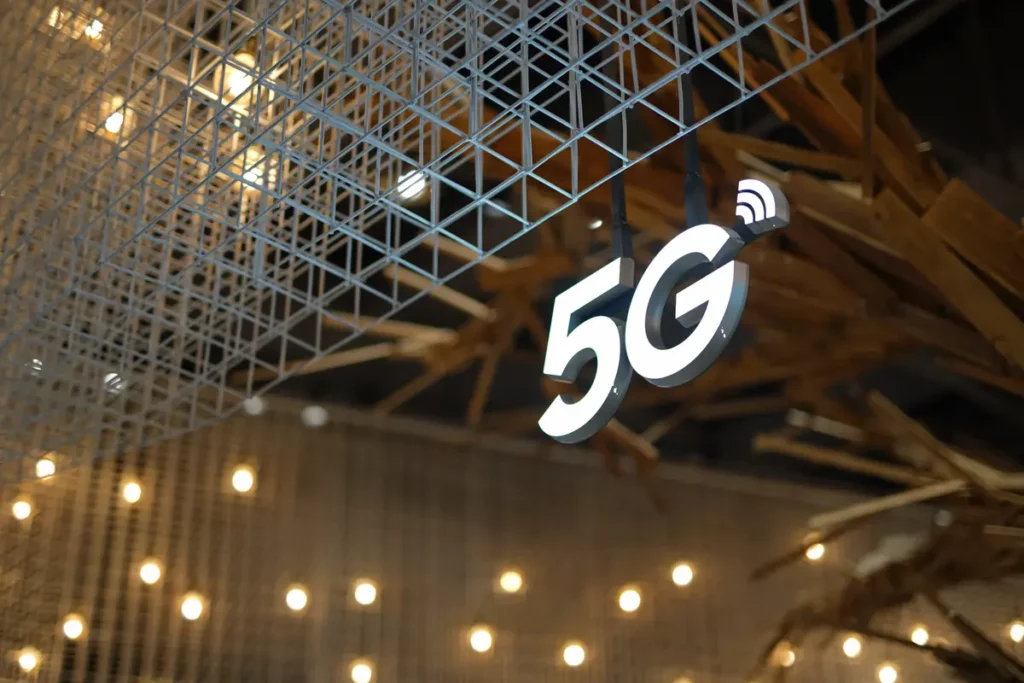Check out the impact of 5G on logistics and the upcoming application cases
For businesses looking to integrate technologies like automation, artificial intelligence, and the Internet of Things, connectivity is a key consideration. The fact that there are so many expectations for how 5G will affect innovation, particularly in logistics, is not a coincidence. In the areas of storage, fleet management, cargo monitoring, and last-mile delivery, technology opens up a whole new world of considerably more driven options.
The sector will, in any event, require a wide range of choices. The pandemic’s consequences and the supply chain crisis in the world both grew.
Queues in overcrowded ports, a shortage of containers and transport professionals, as well as all the standard supply chain inefficiencies, characterized the year 2021. The sector’s concern is ongoing because it conflicts with the other end’s rising demand for particular goods and raw materials.
What consequences can you anticipate from the introduction of 5G technology in the face of logistical chaos?
Which problems in the logistics industry will 5G resolve?
In this post, we will explain 5G, and discuss some implications and uses that the technology makes possible for the market.
What is 5G?
The forthcoming generation of mobile internet networks, or 5G, is built on an innovative concept of connectivity and is intended to take advantage of technologies like augmented reality, the Internet of Things, and artificial intelligence.
Why a new internet generation? because these technologies require additional connectivity. The connection speed is the first prerequisite. It is made possible by the many frequencies, or the several alternatives for information traffic, in 5G and can be 100 times higher than in 4G. Therefore, if a movie takes 35 minutes to download at full speed on 4G, it will take less than 30 seconds to download on 5G.
Low latency, which is necessary for real-time processing, is the second requirement for the widespread deployment of technologies like IoT. Nobody wants a smart automobile to be sluggish when responding, after all. For instance, the variation in response time between devices has decreased tenfold from 50 to 70 milliseconds on 4G to 1 to 5 milliseconds on 5G.
The acceptance of a higher number of devices linked to the same antenna without compromising stability is a requirement for such technological advancements, and this number is 200 times more for 5G than it is for 4G.
For this, there is a new infrastructure, combined with the existing one. This infrastructure will guarantee differentials in relation to 4G and previous generations.
What are the main impacts of 5G technology on logistics?
5G will primarily enable digital transformation and logistics 4.0, which will have an influence on logistics. With the advent of 4G, the industry has already been expanding its technology toolkit in an effort to cut expenses, travel time, planning time, and environmental effects.
The digital revolution itself, however, hit several roadblocks due to the lack of a connectivity infrastructure that provided low latency, speed, and capacity to absorb the connection of multiple devices.
For instance, real-time analytics and limited connection were obstacles to the adoption of IoT devices. According to estimates, 5G would open up a $1.9 trillion market for sensor networks based on the Internet of Things.
Applications that would clearly benefit the industry will be feasible with a strong network infrastructure.
Solutions for smart cities will also have an impact on logistics. Calculating routes and possibilities by mode, especially in last-mile logistics, will be made easier with the use of traffic monitoring and other transit management technologies.
5G applications in logistics
Still in its infancy, 5G technology. Due to a lack of other common tools and technologies, many applications are still in the testing stage or are not yet viable.


The Impact of 5G on Logistics | Image source: Pexels
What are the actual 5G use cases for logistics, then? Let’s check by area.
Storage
For facilities with higher levels of automation, communication is crucial for maximizing the use of already installed robots. It will also be less expensive to implement them with 5G.
Applications related to 5G are also beneficial for monitoring-required cargo, such as vaccines and medications. For instance, sensors might regulate temperature more frequently.
Read more: Everything You Need to Know About Warehouse Layout Design
Fleet management
In addition to time and routes, real-time monitoring and communication with drivers will be possible with 5G. No matter where the workplace is located, data such as speed, fuel usage, and component performance can all be monitored. In response to traffic or weather circumstances, functionality such as driver assistance and route calculation can be provided. Another option in this case is platooning.
See also: 4 Main Types of Transportation in Logistics
Cargo monitoring
Due to a lack of supply chain visibility, shipping updates are only available at particular locations in the flow, which has an impact on quality. Monitoring and updates are going to be easy with 5G connectivity.
Last mile logistics
Improving the efficiency of the final delivery stage, one of the most time-consuming has become crucial with the rise in online sales. Solutions like intelligent drones, delivery robots, and others that are only intended for the end of the logistics chain can be made easier with the help of 5G.
5G: those who place their bets early will win
In general, there is still cautious optimism about 5G, not just in the logistics industry. Many use cases are still in the testing stage as the technology is still in its early days. Nevertheless, the firms leading these tests will reap the benefits first, directing the entire trajectory of the market.
How is your company going about 5G? Let us know in the comments!
And feel free to contact us if require any assistance at all.



